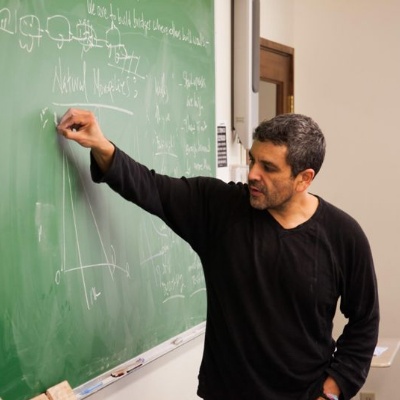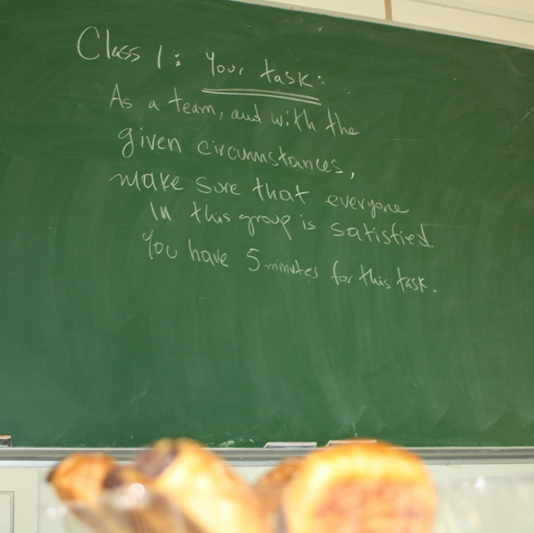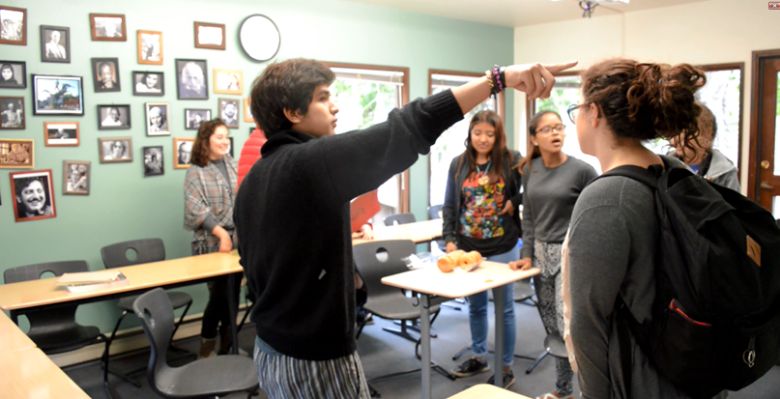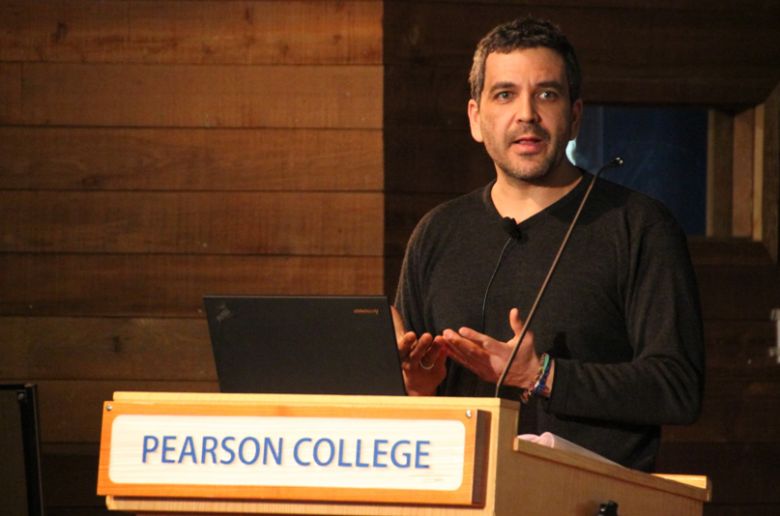Teaching and Learning Beyond the Books

Samuel Perez de Leon is a teacher of economics at Pearson College UWC in Canada. Here, Samuel shares his reflections on his students, his teaching methods and the value of a UWC education.
“Teaching economics at Pearson College UWC for more than 10 years has taught me that inside the four walls of our classroom, more than just learning about economics, we are learning about ourselves.
From the first class session of the term, I encourage my students to learn through experience, rather than telling them what to do, or preparing them for it. At that point in time, students are unfamiliar with their peers and many don’t really know about themselves either. As a good friend of mine (and a Pearson College UWC alumnus) once told me: “They come to UWC to discover who they really are.”
Instead of teaching a “by the book” standard definition of economics, I create an experience for the students so they can define economics in their own language, using their own beliefs and their own diverse backgrounds and paradigms. Then, we discuss.
The first day of classes starts with a box of donuts or chocolate pastries set on a desk in the middle of the classroom with a note that basically states, “With the given circumstances, and within five minutes, collectively make sure that everyone in this classroom is satisfied.” I am not present in the classroom at the time and the students have to figure out what this initial lesson is all about.

After the elapsed time, I enter the classroom and ask them their first assessment went. “Is everyone in this classroom satisfied?” “Do you all deserve an IB 7 mark?” I joke.
Taking into account the diversity of the group, we start our learning journey discussing what happened and what they have learned. I refer to the experience as the remaining months of the term unfold. Why did they decide to do what they did? How was the decision making process? Did they act collectively or was it a top down decision from a few people? Was everyone’s opinion heard and accounted for? Who took leadership? Was this “leader” able to reflect and understand everyone’s needs and perspectives in the time given? How do we understand different cultures under these circumstances? Is there a dominant culture/language or mindset that made some members of the group keep silent and observe? Why do you think that the treats were there to be eaten, distributed or even considered as a source of satisfaction?
Although each year the 
Regardless of the outcome, we always learn from the experience during our discussion. What does it mean to be satisfied? Do we really “need” the croissants? Who feels that they had a better way to solve the situation? “What is the meaning of life?” Even that, the meaning of life, has come into question, when we get involved in a deep conversation about what means to be “satisfied,” after all. We review the global realities and the increasingly-challenged ecosystems around us used to produce what we consider are “satisfiers of needs and wants.”
A few classes later, and after reviewing some standard definitions from different sources, the students write their own definition of “Economics”. Using their insights from the whole experience, including the discussions, I ask them to express their new understanding of what Economics is. They write it in in their own language and according to their own paradigms. Sometimes they even have defined Economics using a Haiku, a poem, a drawing or a metaphor. They shape their ideas and share their definitions with the rest of the class and, collectively, they help each other to refine their concepts. This takes time, effort and creative thought.
The concept itself, the question “what is Economics?”, will not be assessed specifically by any IB paper at the end of their two years of study. Then, you may ask, is it important? Is it worth it? Is the way that they distributed the donuts or croissants important?
Not really.
Moreover, is the Economics syllabus itself important? Well, perhaps as an excuse to trigger further and deeper conversations about why we learn economics the way we do and to even address critically the underlying assumptions of the imperfect economic models, it is. Perhaps also, as an excuse to gather individuals from all continents in a common and safe space, for 60 minutes per day, three days a week, it is.

